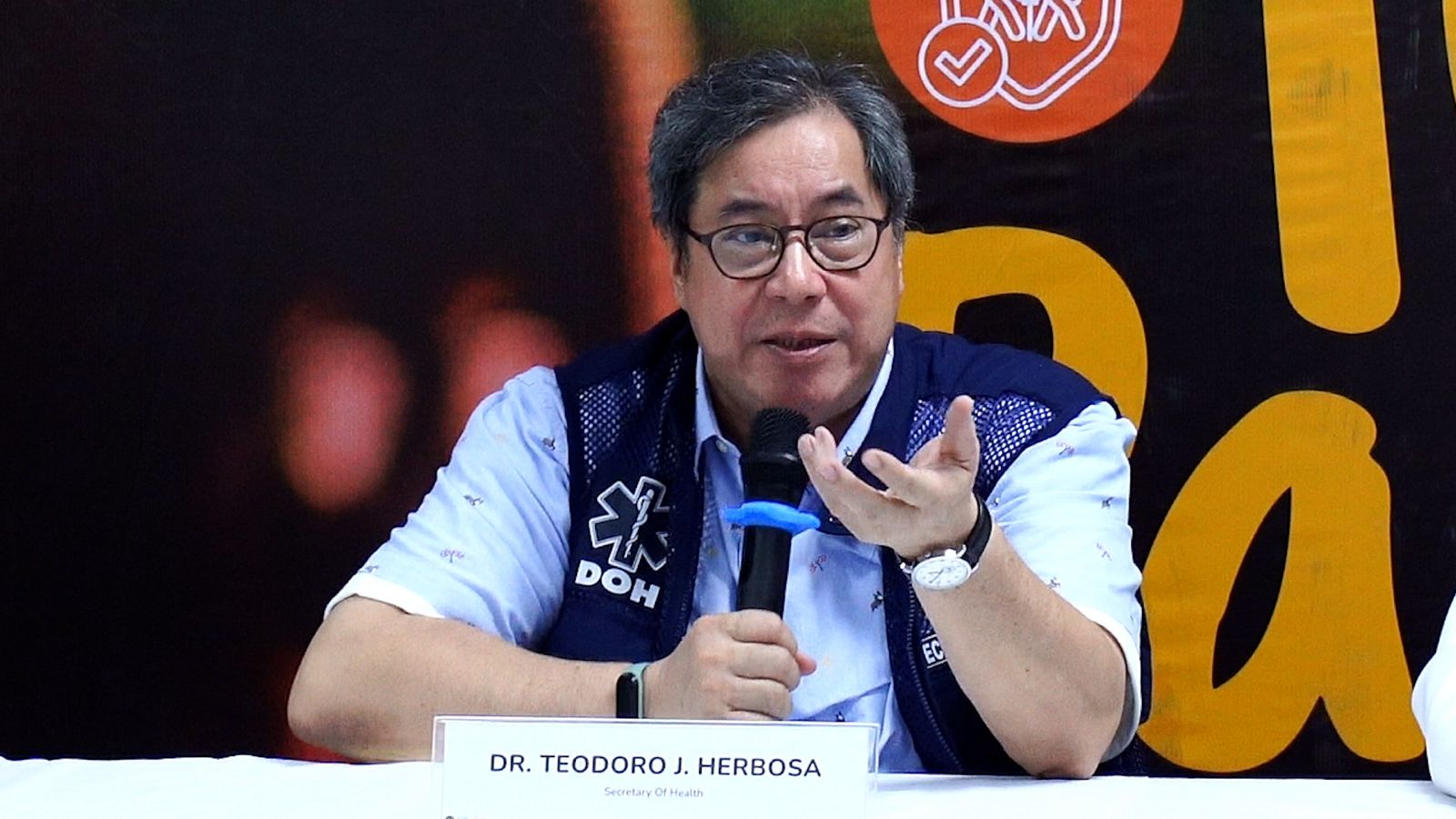
Health Secretary Teodoro Herbosa INQUIRER.NET FILE PHOTO/ARNEL TACSON
MANILA, Philippines — The Department of Health (DOH) is set to investigate allegations that a local pharmaceutical distributor has been offering hefty financial incentives to physicians marketing its products, warning that the doctors involved may lose their license if found to have been prescribing a particular brand instead of generic drugs.
The agency’s spokesperson, Assistant Secretary Albert Domingo, said the DOH and the Food and Drug Administration (FDA) had formed a team to look into the complaints against the drug company and its affiliated doctors.
The DOH withheld the company’s name.
READ: Leachon bares doc-pharma firms ‘collusion’ in prescribing meds
“We are also reaching out to our fellow doctors to come out and help us in this investigation,” Domingo said in a televised briefing on Tuesday.
“We know that there are more honest doctors in our country. When we became physicians, we took an oath that the well-being of the patient is our first and only concern,” he added.
According to Domingo, doctors found to have taken part in such a scheme may be cited for violating the Code of Ethics of the Medical Profession.
Unethical and unprofessional conduct may be grounds for the “reprimand, suspension, or revocation of the certificate of registration of the offending physician” under the Medical Act of 1959 or the Professional Regulatory Commission (PRC) Modernization Act of 2000, he said.
READ: Tulfo wants ban, recall of ‘ineffective’ generic medicines
Law on generics
The DOH also reminded medical professionals to comply with the Universally Accessible Cheaper and Quality Medicines Act of 2008, which aims to keep medical spending at a minimum for ordinary consumers.
Under the law, public and private medical, dental and veterinary practitioners should issue prescriptions using the generic name of the medicine, and putting the brand name of the prescribed drug is only optional.
The first violation of this rule is dealt with a reprimand but will be entered into PRC records.
Succeeding violations are penalized with a fine of up to P100,000 and the suspension of the doctor’s license for at least a year.
Conflict of interest
In Congress, Sen. JV Ejercito on Wednesday identified the company as Bell-Kenz Pharma Inc.
Ejercito, speaking as vice chair of the Senate committee on health and demography, said he would file a resolution on Monday calling for an investigation into the firm’s operations.
Ejercito said its business practice, if found questionable, would go against the intentions of the Universal Health Care (UHC) Act, a law he had sponsored to help bring down the medical expenses of Filipinos.
He said the drug company’s alleged involvement in a multilevel marketing strategy was first brought to his attention three months ago by a group of “whistleblowers,” among them patients, doctors and officials of pharmaceutical firms.
Citing the initial information they gathered, he said the stockholders of Bell-Kenz were doctors who had allegedly “recruited” fellow physicians to invest in the company and also market its products for commissions.
Breach of ethics
“Why was this [allowed] to go on in recent years? There’s really a clear breach of ethical standards,” Ejercito said in a media briefing.
“Their (business) practice is very concerning. This has to be investigated,” he said. “The shareholders (of Bell-Kenz) are doctors who prescribe the drugs that their own company imports. That’s clearly a conflict of interest.”
According to Ejercito, physicians who helped Bell-Kenz sell vitamins and medicines to patients suffering from diabetes, cardiovascular problems and other lifestyle diseases were “lavishly rewarded” with high-end cars, foreign trips and luxury watches.
Worrisome claims
“We passed the UHC law because we wanted to lower the cost of medical expenses. If there are doctors prescribing medicines that you don’t really need, it would only add to the expenses of Filipinos,” Ejercito argued.
On Tuesday, Sen. Christopher Go, chair of the Senate committee on health and demography, said the allegations against doctors who deliberately recommend drugs to their patients in exchange for monetary rewards were “worrisome.”
He said the DOH, the PRC and other agencies should immediately look into the issue with the help of other medical associations.
The DOH, Go said, had already issued a department circular reminding doctors to abide by their professional and ethical standards in promoting and marketing prescription drugs and medical devices.
Earlier this week, public health reform advocate Dr. Tony Leachon called on authorities to investigate the allegations.
In Department Circular No. 2024-0141 issued by the DOH on Monday, the agency outlined ethical guidelines for doctors prescribing products to patients.
It also ordered hospitals to adhere to DOH Administrative Order No. 2015-0053, which spelled out similar guidelines.
“Medical professionals are expected to uphold professional and ethical standards. Societal pressures, financial gains, and administrative exigencies shall not compromise the rights of the patient to quality healthcare services,” Health Secretary Teodoro Herbosa said in the circular.
“The [DOH] strictly reminds all health professionals and personnel that accepting gifts, grants, or any emoluments from biopharmaceutical companies or members of industry, in exchange [for] any act benefiting such company or member of the industry, is unethical,” he added.
The DOH earlier maintained that it could only investigate healthcare facilities, while the FDA, one of its attached agencies, could scrutinize pharmaceutical companies.
The department deferred to the PRC and the concerned professional organization as to the conduct of a separate investigation focusing on the doctors.